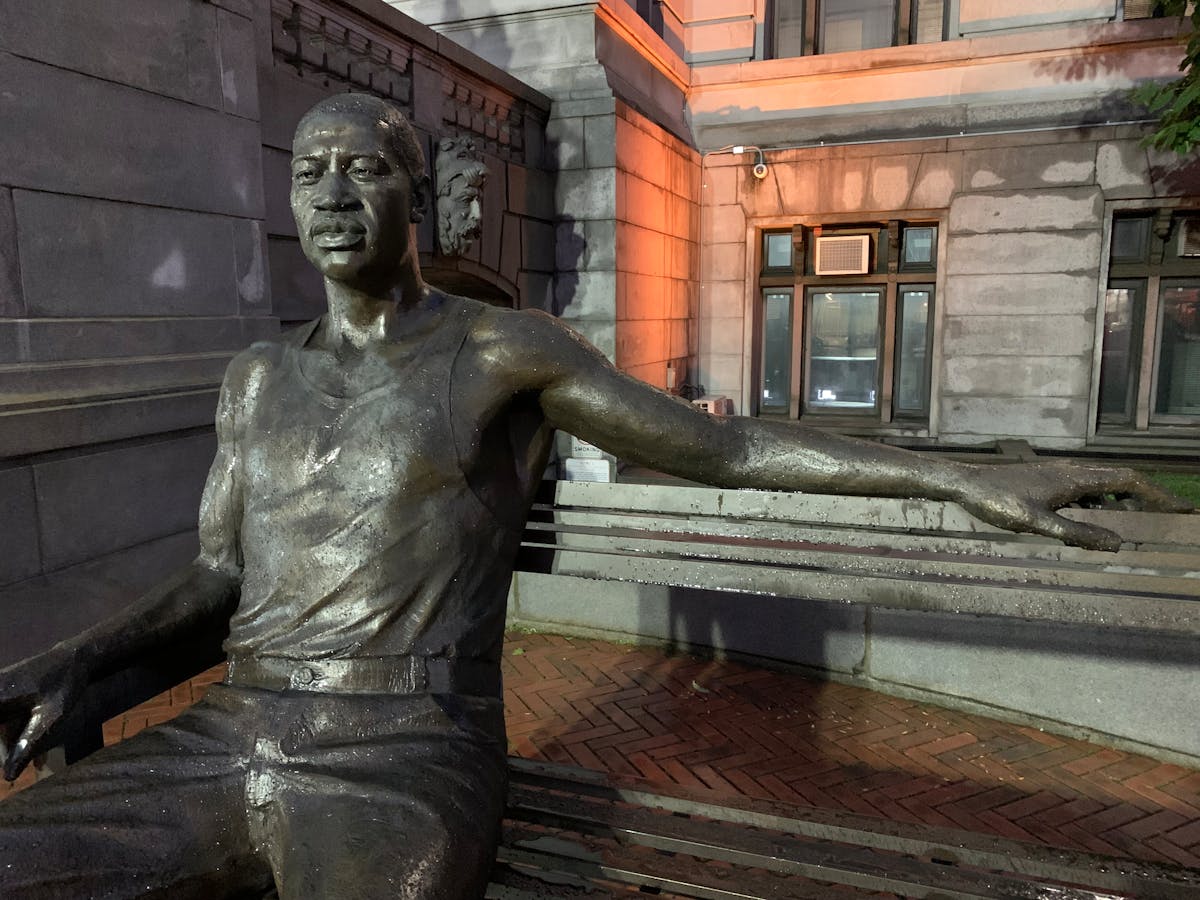The Minneapolis City Council unanimously confirmed Brian O'Hara as the next police chief Thursday, a decision meant to usher in a new era of policing in a city where it is still defined by George Floyd's murder.
Elected officials, including those initially skeptical of hiring an outsider as the next top cop, wished O'Hara success in transforming the department and turning the page on what's widely considered the most difficult chapter in Minneapolis' history.
"I'm not easily impressed, but I'm impressed with you," said Council Member Lisa Goodman, a longtime supporter of Interim Chief Amelia Huffman, who was not a finalist for the permanent role.
"I do think that you are the right person, at this moment, for this position. This community holds incredible hope for you — and this department," Goodman said ahead of the 13-0 vote securing his appointment. "The moment is heavy, not celebratory, because we know there's so much more work to be done."
The unanimous decision was met by applause in a council chambers packed with uniformed officers and much of MPD's command staff. Upon his confirmation, O'Hara promised to engage with the whole community, including those who may vehemently disagree with the agency and its policies.
"Everyone is hungry for change in this city," O'Hara told reporters afterward. "I'm not here to maintain the status quo."
Over his three-year term, O'Hara will be tasked with rebuilding the department's depleted ranks, curbing violent crime and implementing a litany of court-mandated reforms, including those required by an anticipated federal consent decree.
Mayor Jacob Frey hailed the vote as a major step toward transforming public safety in Minneapolis, which became the epicenter of a global movement for racial justice in the aftermath of Floyd's death and continues to face steep demands to improve police accountability.
"This sends a message to our entire city that we are united in cause, united in action," Frey said at a news conference introducing the new chief. "We are going to set the example for others to follow."
O'Hara, 43, is a veteran law enforcement officer from New Jersey who steadily climbed the ranks of the Newark Police Department before becoming public safety director and, most recently, deputy mayor. During his time there, supporters credited him for collaborating with longtime department critics and working to implement the terms of a federal consent decree mandating sweeping changes to the agency. Many city officials expect Minneapolis will soon face similar court orders as a result of concurrent investigations by the Minnesota Department of Human Rights and U.S. Justice Department.
O'Hara will be formally sworn in during a private ceremony Monday. A larger public celebration is expected later next week.
Council members on Thursday praised O'Hara's accessibility and candor — both with their constituents during public meetings and in private appointments with them. Council Member Aisha Chughtai recounted how she ran out of time during last week's public hearing to get all of her questions answered and sought to schedule a one-on-one meeting. Chughtai said she called him directly and that he welcomed the invitation.
A two-hour walk around his new North Loop neighborhood left Chughtai feeling more hopeful about the future — and ultimately swayed her vote.
"I've heard a lot of people come here and make similar commitments. And as time has progressed, I have seen those commitments not be followed for long," she said. "No one person can change an institution, no one person can undo centuries worth of harm, but it does take people who are willing to authentically and deeply engage with with everyone, and particularly the people who disagree with them … to make that type of progress."
Council Member Robin Wonsley also offered her blessing to O'Hara, emphasizing that his experience overseeing a consent decree in Newark must drive critical changes here, including in upcoming contract negotiations between the city and Police Officers Federation of Minneapolis.
"It's clear to me that you come from a police force that had a much higher standard of ethical practice than our force," Wonsley said. "There is a well documented history of [elected leaders] turning a blind eye to the violent practices that exist within MPD. I have no interest in continuing that tradition."
Chugtai and Wonsley were among the three council members who previously voted against the appointment of Cedric Alexander, Minneapolis' first community safety commissioner, who now oversees the city's police, fire, 911, emergency management and violence prevention programs.
O'Hara is the first outsider to lead the Minneapolis Police Department in 16 years. He succeeds Medaria Arradondo, who served as the city's first Black chief and led the agency through Floyd's murder and the ensuing crises.
O'Hara will earn an annual salary between $253,000 and $300,000 — up significantly from the roughly $204,000 Arradondo earned last year.
Last week, his nomination sailed through a Health and Public Safety Committee meeting in a 5-0 vote following a public hearing, which drew a small group of speakers — most of whom favored his appointment.
Since then, O'Hara has remained in the Twin Cities, bouncing between community meetings in each precinct, introducing himself to residents, business owners and faith leaders. Wednesday night at Northeast Library, people peppered him with questions about how he plans to shift the department's culture and bolster accountability.
"I need to get a look under the hood to see how this police department is actually operating," he said, noting that as an outsider he brings a different perspective than those who came up through MPD's ranks.
"The greatest policies in the world written on paper mean absolutely nothing if that's not how the cops are behaving on the street," O'Hara said. "Culture is more than that."

How Minnesota House Republicans ended the DFL's state government trifecta
Project 2025 platform proposal aims to allow mining in Boundary Waters watershed

Ann Johnson Stewart wins special election, giving DFL control of Minnesota Senate

Democratic U.S. Sen. Amy Klobuchar defeats GOP challenger Royce White

